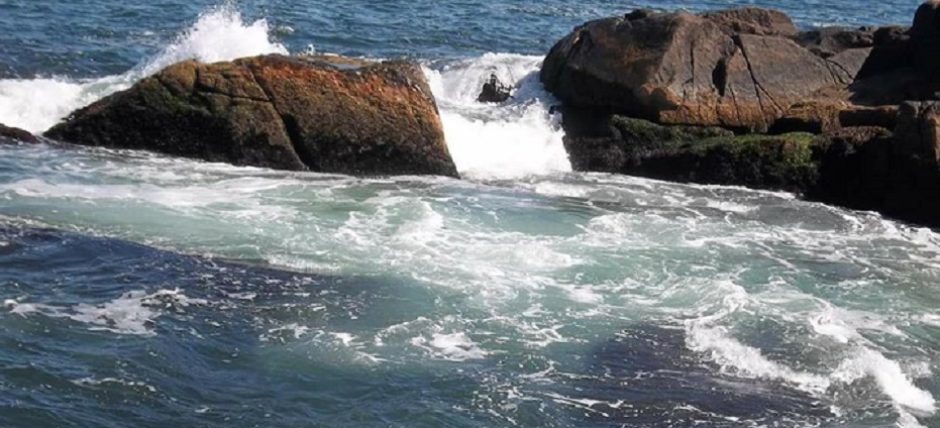I.
Clear sky on pristine snow—equals a glaring Migraine Room with not enough doors to the mountain—too much light—too much chaos. I did touch you, but I froze. I mean I froze—and tried to touch you. The order of fractal-events—too immense. I don’t know what I mean to say anymore. I sing unstrung cello, wailing ice, and hurt animal that hides under the holly—missing the one who comforted me as if I were a frightened child on the Victorian porch during thunderstorms. Missing the one who recognizes me—in the labyrinth of my own, necessary formation—the wrought-iron patinaed, ornate bird cages. Someone with gentleness at all the rusted edges.
II.
Weary of the ghosts in the house who do not speak, give credence [definitive]—to their strange presence. The present pivots toward tomorrow, and I am glad. At the precipice, I throw down all the cards from the remnants of the Houses we built—most lost in the Arctic winds that take the aged, poor, cocky, and unprepared. The cacophonous village of the birds at the winter feeder offer distractions and sufficient solace. I offer lamentations for the frozen bird bath, the gathering squirrels, the ornery blue jay. Oh, Mother, do not leave—do not shovel the deck. When they come for you, wait. Tell them you are busy with preparations for the future. Lock all the doors.
III.
In my statue, the left hand has been severed and shorn. I miss it—though eternally grateful for the right. O Maker, is this folly to assist my corroded singing? I court the fluffy tails of squirrels and stalk the crows— in the bitter cold ends of January. Yes, I am moving forward—but away—from the too-bright lite-brite sun-glare of winter snow. The squirrels and crows study me from the trees. I wish they knew me better.
IV.
The shelves of the soul can grow too heavy with extraneous effects—and crash eternity’s portal. I saw it happen to you yesterday. I was in the woods with a tureen of potato soup—watching you rummage through your House for crazy glue, then packaging tape. It was very touching how you gingerly handled each fractured shard—before you assembled them—one at a time, so lovingly—into a bizarre creature you cradled in your arms. Things became awkward after that. I won’t say it. I waited under the tallest pines with three hawks—the soup at this point, cold. Until night’s indigo-velvet theater curtains plummeted. Leaving us all—in separate parts of the stage [cubby or pigeon holes, if you will]. Even more removed from ourselves and each other than usual—this Winter of Frozen Promises. Without my flashlight or phone—it took an eternity—to find my way home. When I finally arrived half-frozen—I shed all my layers of clothes. And lit a jasmine candle in your honor.
V.
The mournful wailing of the ice hurts more today than yesterday. It has fallen much too cold—even the sparrows know how to circumvent their shadows. Through the sheerest lace curtains—the elderly woman across the street watches them alight the frozen bird bath. In front of the roiling fire, I wrote you the saddest letter—before I offered my sentences to flame.
VI.
The Arctic cold won’t leave us. I can only imagine my father, a boy of twelve—his little brother, just five; his sixteen-year-old sister, and tired forty-year-old parents—in the Siberian taiga for two long winters—taking turns, those old enough, with the other family living in their log cabin, shabby shelter—to keep the fire going enough, without wasting too much firewood—to stay warm. It is silly to hurt for them seventy-six years later—but I can’t help myself. The bitter, vociferous winds accompany me backwards through sharp corners where I don’t want to travel. Oh, Tata, Ciocia, Babcia, and Dziadek—speak to me from the other world. Tell me you are okay, even happy—and that the warm sunlight and your invisible arms—will welcome me.
VII.
The angels in the paintings seem very tired—from all their responsibilities and such demands on their timelessness. The humans, so needy—but at least grateful, for the most part—and expressive of that. Their golden hair tangles on the nails of coffins—ironic, since they comb the hair of children with their hands. You are happiest when you think they are watching you—out behind the shed chopping wood like a madman to keep your House warm enough this New Year—secretly worried about the cost to all involved—and those who will freeze. You hope they are watching when you are driving—leaning into the winding roads nervously—avoiding the exit of the crash. That they hover above when you defy sleep—needing less time alone.
